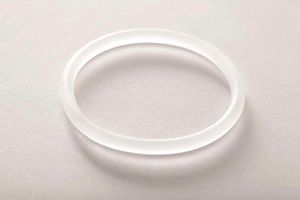Women and girls to benefit from multiple HIV prevention options

Acting Health Director General Dr Patrick Amoth.
What you need to know:
- The products, dapivirine vaginal ring, oral PrEP (pre-exposure prophylaxis) and cabotegravir injectable, will all be available at Migosi and Chulaimbo Sub-county health facilities in Kisumu and two other facilities each in Mombasa and Nairobi, hence making it easier for the women to choose the option that they are comfortable to use.
- The products, according to the Health ministry’s acting Director General Patrick Amoth, will improve and increase the uptake of HIV prevention products while breaking HIV transmission.
Women and girls will have more HIV prevention options to choose from after the Ministry of Health announced a five-year study project that will present the choices to users for free.
The products, according to the Health ministry’s acting Director General Patrick Amoth will improve and increase the uptake of HIV prevention products while breaking HIV transmission.
The products, dapivirine vaginal ring, oral PrEP (pre-exposure prophylaxis) and cabotegravir injectable, will all be available at Migosi and Chulaimbo Sub-county health facilities in Kisumu and two other facilities each in Mombasa and Nairobi, hence making it easier for the women to choose the option that they are comfortable to use.
Liverpool Voluntary Counselling and testing country director for Maximizing Options to Advance Informed Choice for HIV Prevention (Mosaic) Patricia Jeconiah said the study will be implemented in six sites in Mombasa, Nairobi and Kisumu counties.
In each county, the products will be available in two health facilities and will be open to everyone who needs them.
Ms Jeconiah said to achieve the goal, they will be interacting with the populations in urban and rural settings.
“In the initial stages, we will be focusing on dapivirine vaginal ring and then push for the injectable to be registered by the Pharmacy and Poisons Board after which we will include it,” Ms Jeconiah said .
The catalyst study being implemented in five African countries — Kenya, Lesotho, South Africa, Uganda and Zimbabwe – is aimed at increasing the uptake of prevention products by presenting women with three different options.
The study, which will be conducted under Mosaic, will tell which option is mostly preferred and why while also assessing the implementation of an enhanced PrEP service delivery package.
Dr Amoth said the programme will inform the ministry of more interventions to curb the spread of the viral disease.
He said the study will also inform researchers, health experts and policymakers on the new interventions that should be put in place to break the cycle of HIV transmission.
“This will help us visualise what the populations prefer from the options. The results will be analysed to see what best works for our population,” said Dr Amoth.
According to Dr Amoth, women and youth continue to record high cases of HIV infections, with adolescent girls and young women contributing up to a third of the new infections.
The study comes at a time when Kenya has for the first time in a decade recorded an increase in the number of new infections.
In the 2022 World Aids Day Report, the number of new infections had increased by 2,000 from 32,025 to 34,540.
Some of the challenges leading to the increase in number of infections among women and girls are gender-based violence and teen pregnancies, which are still high in a number of counties.
“The study is vital in scaling up interventions like the ring and injectable. It provides a strong basis for providing more options to women,” said Dr Amoth.





